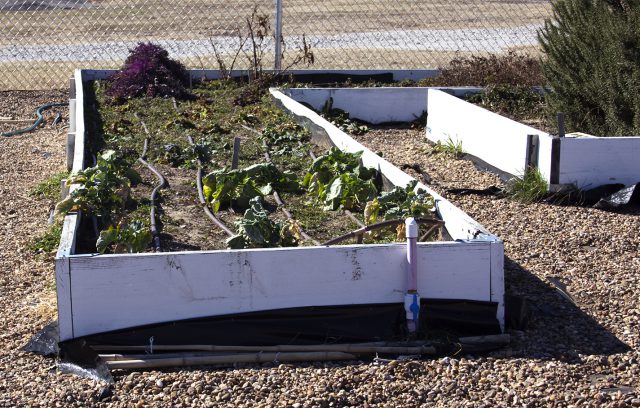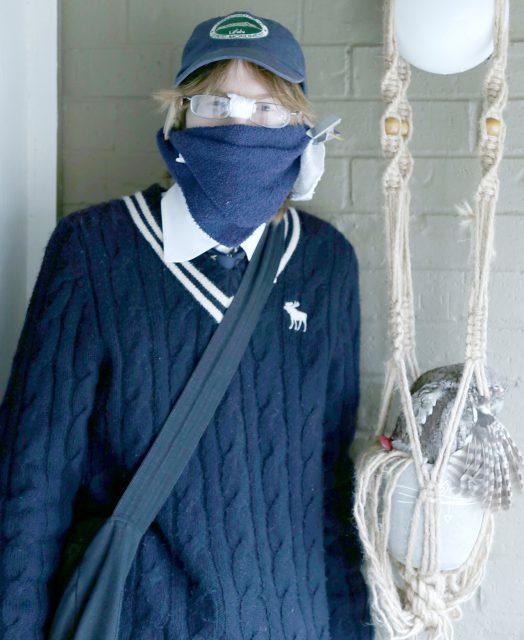By Annette Kirk/reporter
Students can rent a plot in the community garden and one day lounge under trees and eat home-grown fish as part of SE Campus’ sustainability initiative.
Facilities manager Brian Goodwin is part of SE’s Sustainability Committee, which ensures the campus grows with environmental conservation in mind.
Many students do not know the campus has a tree farm, a wildflower field, a beehive with 60,000 bees, a new aquaponics system and a community garden where students can rent plots for $30 per semester, Goodwin said.
“Many people don’t realize that we are here,” Goodwin said. “But we are, and we hope to expand the effects of the committee and hopefully teach people where everything started from.”
The Sustainability Committee is involved in every aspect of growth on SE, making sure projects are done efficiently and with the environment in mind, SE president Bill Coppola said.
“We work very close with the committee,” Coppola said. “They have been involved with the construction of the new learning commons all the way to maintaining the community garden.”
The committee purchased the aquaponics system called Symbiotic Aquaponics. Students can learn how to grow plants and herbs sustainably by using fish excrement, Coppola said.

Photo by Karen Anderson/The Collegian
“The process is that we have the fish set up in this tank right here and they do their business,” Goodwin said. “Then we have a pump attached to this that will pump the water out and over to raised plant beds, which should filter all the bad chemicals created by the fish out and the leftover will fall through and be placed back in the fish tank. The system is self-sustainable, and if there is any water overflow, there is a bin to catch it and put it back into the system.”
The committee is currently testing the waters with a 350-gallon tank system, but one day SE hopes to have tilapia fish in the tanks growing so there will be fish to harvest for the Monday lunches, Goodwin said.
The $5 lunches are created by SE culinary students who rent out some of the garden plots each semester and then grow food for the Monday meals.
“We have $5 lunches here on campus that are really good,” said Michael Cinatl, SE assistant to the president. “We were originally going to harvest the honey from the hive this fall to use for the lunches. But someone told us to wait until the spring because that is when the honey is best, and the bees would be settled in.”
Providing food for those meals is the end goal of the Sustainability Committee’s project, Goodwin said. The other plant beds are rented by other students, and the campus hosts an end-of-the-semester farmers market where students sell and show off the produce they grow.
“I hope that one day the tree farm, bee farm and the community garden including the aquaponics keep growing so that TCC SE Campus can provide for the campus community and that it be offered as a credit course,” Goodwin said. “You know, it is important that students know how to provide for themselves and learn these skills because you never know what is going to happen. Going back to your roots is important.”








































